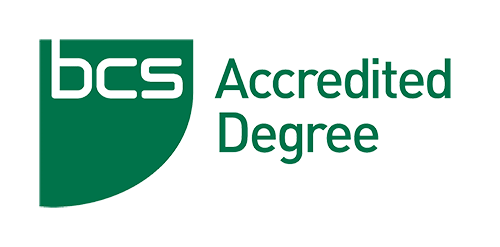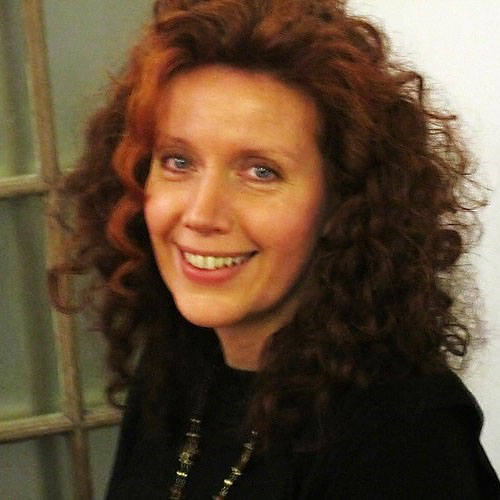Computing and Information Systems, MSc
Advance your career as a business analyst, web designer or systems developer with our Master’s in Computing and Information Systems.
There is an increasing need within the computer science industry for professionals in business analysis, web design, system development and project management, as well as IT support and training. This MSc in Computing and Information Systems is designed to meet those needs.
You'll explore software tools and techniques and systems modelling, alongside options that range from data warehousing and project management to developing mobile apps.
This course is ideal for recent graduates and computing practitioners who require more formal training. By offering a solid foundation in modern software tools and the principles of good software engineering, we provide the skills you need to seek exciting new job opportunities.
This course is accredited by BCS, The Chartered Institute for IT for the purposes of partially meeting the academic requirement for registration as a Chartered IT Professional.
Location
Duration
- 1 years full-time
- 2 years part-time
Start month
September; January
Home /international fees 2025/26
£11,325 /£18,700
What you should know about this course
What you will study
About the course team
Welcome to our Master's in Computing and Information Systems, which is taught from within the School of Computing and Mathematical Sciences. Your teaching team includes academics and practitioners with experience in various aspects of Computer Science, Computing and Information Systems. The majority of our team holds a teaching qualification.
Come and meet us
We are offering virtual events so that you can still experience how Greenwich could be the right university for you.
Next Open Days
Got a question?
To find out more about our Open Days and Campus Tours or if you need any assistance, please email opendays@gre.ac.uk.
Entry requirements
An undergraduate (honours) degree at 2:2, or above, in Computing, Computer Science, Mathematics, Physics, Engineering, Information Systems or Multimedia or a relevant numerate subject that includes software development experience.
Applicants without a degree that have substantial commercial/industrial experience including software development using modern programming languages and design may be considered.
For more information, use our contact form or call us on 020 8331 9000.
You can also read our admissions policy.
For more information, use our contact form or call us on 020 8331 9000.
You can also read our admissions policy.
Further information about entry
We welcome applications from mature students and/or students with professional work backgrounds.
Available to overseas students?
Yes
Can I use Prior Learning?
For entry: applicants with professional qualifications and/or four years of full-time work experience will be considered on an individual basis.
For exemption: If you hold qualifications or courses from another higher education institution, these may exempt you from courses of this degree.
How you will learn
Teaching
In a typical week, learning takes place through a combination of lectures, tutorials and practical work in the labs. You'll be able to discuss and develop your understanding of topics covered in lectures in smaller group sessions, and put your learning into practice in our specialist computer laboratories.
Teaching hours may fall between 9am and 9pm, depending on your elective courses and tutorials.
Class sizes
Lectures are usually attended by larger groups and seminars/tutorials by smaller groups. This can vary more widely for modules that are shared between degrees.
Independent learning
Outside of timetabled sessions, you'll need to dedicate time to self-study to complete coursework, and prepare for presentations and exams. Our Stockwell Street library and online resources will support your further reading and research.
You can also join a range of student societies, including our Computer and Technology Society, Gre Cyber Sec, Forensic Science Society, and Games Development Society.
Overall workload
Your overall workload consists of lectures, tutorials, labs, independent learning, and assessments. For full-time students, the workload should be roughly equivalent to a full-time job. For part-time students, this will reduce in proportion with the number of modules you are studying.
Assessment
On this course, students are assessed by coursework, examinations and a project. Some modules may also include practice assessments, presentations, demonstrations, and reports, which help you to monitor progress and make continual improvement.
Feedback summary
We aim to give feedback on assignments within 15 working days.
Dates and timetables
The academic year runs from September to the end of August, as the students are working on their project full-time during the summer months.
Full teaching timetables are not usually available until term has started. For any queries, please call 020 8331 9000.
Fees and funding
University is a great investment in your future. English-domiciled graduate annual salaries were £10,500 more than non-graduates in 2023 - and the UK Government projects that 88% of new jobs by 2035 will be at graduate level.
(Source: DfE Graduate labour market statistics: 2023/DfE Labour market and skills projections: 2020 to 2035).
| Cohort | Full time | Part time | Distance learning |
|---|---|---|---|
| Home | £11,325 | £1,887 per 30 credits | N/A |
| International | £18,700 | £3,117 per 30 credits | N/A |
Accommodation costs
Whether you choose to live in halls of residence or rent privately, we can help you find what you're looking for. University accommodation is available from £126.35 per person per week (bills included), depending on your location and preferences. If you require more space or facilities, these options are available at a slightly higher cost.
Scholarships and bursaries
We offer a wide range of financial help including scholarships and bursaries.
The Greenwich Bursary
This bursary is worth £700 for new undergraduate students with a low household income, entering Year 0 or 1 who meet the eligibility criteria.
EU Bursary
Following the UK's departure from the European Union, we are supporting new EU students by offering a substantial fee-reduction for studying.
Financial support
We want your time at university to be enjoyable, rewarding, and free of unnecessary stress, so planning your finances before you come to university can help to reduce financial concerns. We can offer advice on living costs and budgeting, as well as on awards, allowances and loans.
Careers and placements
What sort of careers do graduates pursue?
Graduates from this Computing and Information Systems course are equipped for employment in industry, commerce or research with a proficiency in the key theoretical and practical areas in computing, including their application to modern information systems development.
Do you provide employability services?
Our services are designed to help you achieve your potential and support your transition towards a rewarding graduate career.
The Employability and Careers Service provides support when you are preparing to apply for placements and graduate roles. It includes CV clinics, mock interviews and employability skills workshops.
Each School also has its own Employability Officer, who works closely with the industry and will provide specific opportunities relevant to your own course.
Accommodation
Greenwich
Living in halls of residence is a great way to make new friends and get into the social side of university life. With four great locations, all minutes away from the campus and the centre of historic Greenwich , you will be at the heart of one of the most beautiful university settings in the UK.
Rooms start at £146.30/wk and include Wi-Fi, utility bills, access to our on-campus gym and 24-hour security - and just a 10-minute train journey to central London. Students based at our Greenwich campus can also choose to live the Student Village at Avery Hill, which is only a short ride on our free shuttle bus.
Support and advice
Academic skills and study support
We want you to make the most of your time with us. You can access study skills support through your tutor, lecturers, project supervisor, subject librarians, and our academic skills centre.
We provide additional support in Mathematics.
Support from the department
As a Computing and Mathematical Science School student you will be able to enter our Oracle mentoring scheme. This helps students to liaise with industry for advice on careers, professional insight, guidance in looking for jobs, and developing employability and presentation skills.
Not quite what you were looking for?
We've got plenty of other courses for you to choose from. Browse our postgraduate courses or check our related courses below.....
Computer science and computing at the University of Greenwich
Discover the possibilities of technology at Greenwich, where courses shape students from undergraduate to postgraduate levels. Covering some of the most relevant industry topics, such as cybersecurity and artificial intelligence.
Visit our computer science and computing degrees page.
Computer science and computing degrees
Mode of study
Select from the dropdown below.
| Course level | |
| UCAS code | |
| Duration | |
| Location |









